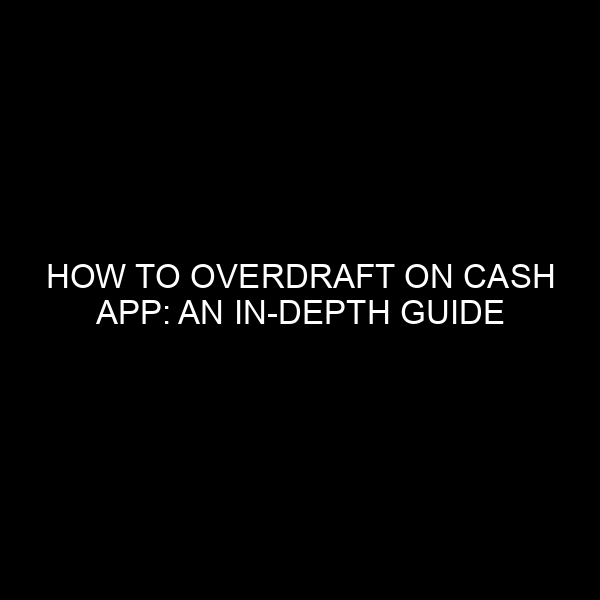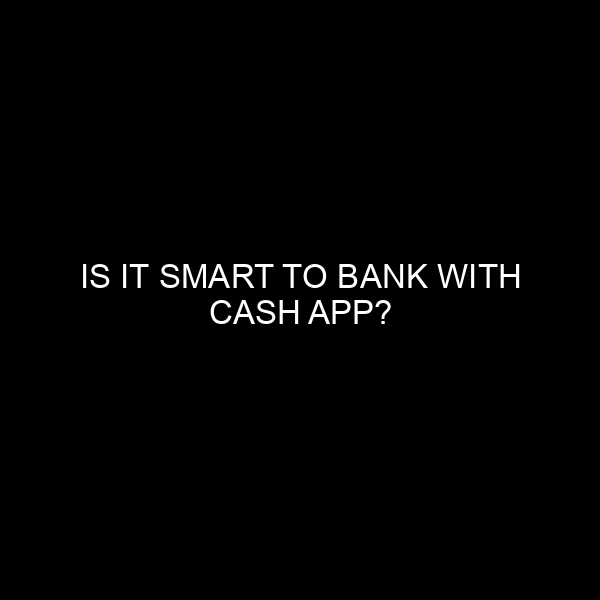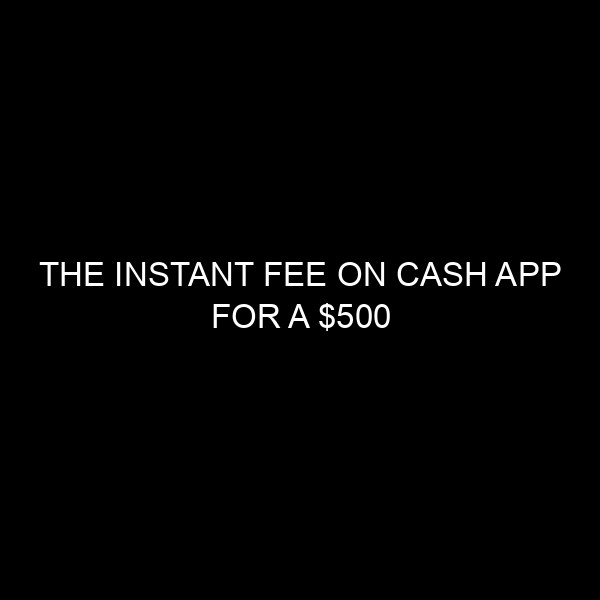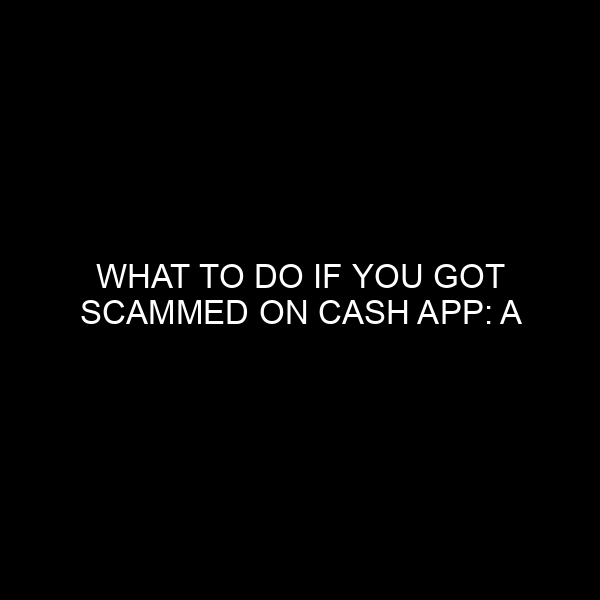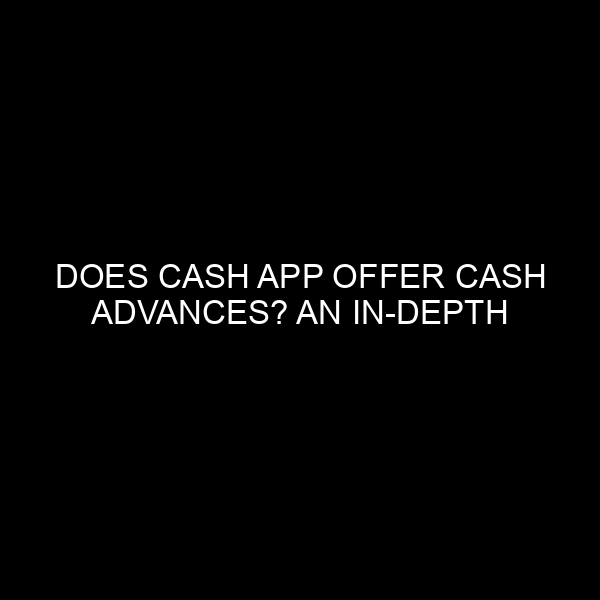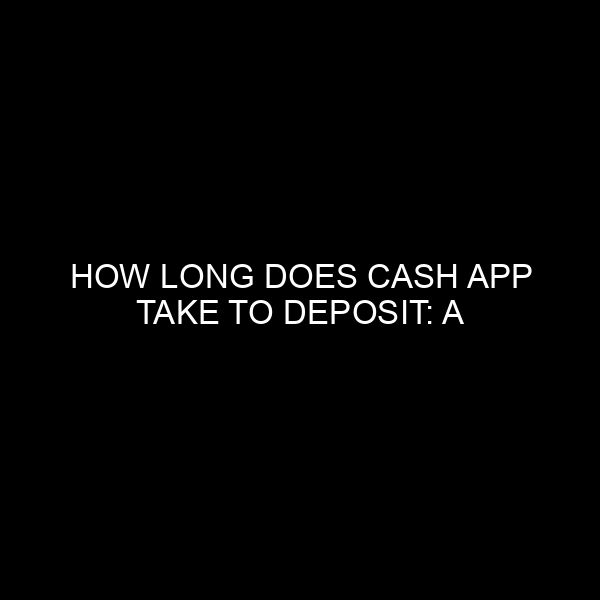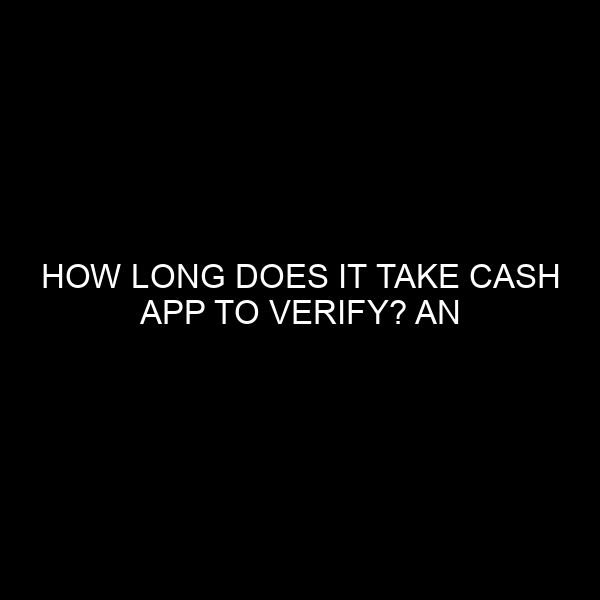How to Overdraft on Cash App: An In-Depth Guide
As technology propels us into an increasingly digital age, mobile payment apps like Cash App have become essential tools in our daily financial transactions. Cash App, developed by Square Inc., provides a convenient platform for both peer-to-peer transactions and business dealings. However, as with any financial tool, it’s crucial to understand how its features work, including the possibility and implications of overdrawing. In this comprehensive guide, we’ll explore the intricacies of overdrafting your Cash App, from the basics to the potential consequences.
What Is Overdrafting?
Before delving into the specifics of overdrafting on Cash App, it’s essential to establish a clear understanding of the term “overdraft.” In traditional banking, an overdraft occurs when a person’s bank account balance goes below zero, allowing them to spend more than what they have available. Generally, banks will charge an overdraft fee for this service, but it offers a safety net for times when liquidity might be momentarily low.
Cash App’s Approach to Overdraft
Unlike conventional banks, Cash App does not provide a standard overdraft service. If your Cash App balance isn’t sufficient to cover a payment or purchase, the transaction will typically be declined. However, there are certain scenarios and features introduced by Square Inc. that may be misconstrued as ‘overdrafting.’
1. Cash Card
The Cash Card, a free, customizable debit card offered by Cash App, is linked directly to your Cash App balance. If you attempt to make a purchase that exceeds your available balance using the Cash Card, the transaction will likely be declined, preventing you from going into a negative balance.
2. Cash App Boosts
Cash App’s Boosts are unique discounts or cashback offers when you use your Cash Card at specified merchants. While Boosts can help save money, they won’t allow you to spend more than what’s in your Cash App balance. Always ensure you have enough funds to cover the original purchase amount, even before the Boost is applied.
3. Linked Bank Accounts
When setting up Cash App, you have the option to link your bank account. If you attempt to transfer more money to a friend or business than you have in your Cash App balance, Cash App will draw the difference from your linked bank account. It’s important to understand that any overdraft fees incurred due to insufficient funds in your linked bank account would be charged by your bank, not Cash App.
Avoiding Unwanted Overdraft Fees
While Cash App itself doesn’t charge overdraft fees, your linked bank might. To avoid any unwanted fees:
- Monitor Your Balance Regularly: Make it a habit to check your Cash App and bank account balances regularly, especially before making larger transactions.
- Set Up Alerts: Many banks offer balance alerts to notify you when your account falls below a specific amount. Utilizing these can help you avoid potential overdraft fees.
- Opt-Out of Overdraft Protection: Some banks automatically enroll you in overdraft protection. While it can be useful in emergencies, it might result in fees. Depending on your banking habits, you may opt-out of this feature.
Consequences of Overdrafting
While Cash App doesn’t offer a traditional overdraft service, consistently spending more than what you have, especially in your linked bank account, can have consequences:
- Financial Strain: Overdraft fees can quickly accumulate, adding unnecessary financial strain.
- Credit Score Impact: Consistent overdrafts might impact your credit score if your bank reports it to credit agencies.
- Account Restrictions: Your bank might place restrictions or even close your account if you frequently overdraft.
Conclusion
Overdrafting can be a useful tool when managed responsibly, but it’s essential to understand its implications fully. While Cash App doesn’t traditionally allow overdrafts, your linked bank account might, leading to potential fees or other consequences. Always be vigilant about monitoring your balances and understanding the terms and conditions of your financial tools. Your financial health depends on informed and proactive decisions.
